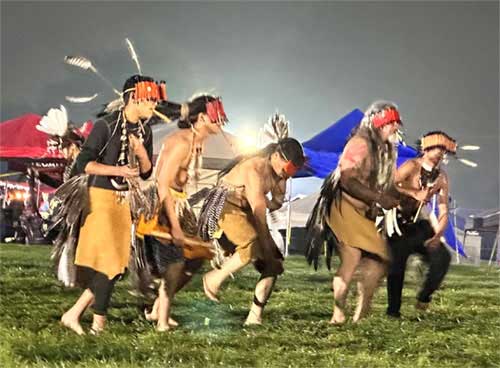Why Is Tribal Sovereignty So Important for Native American Tribes?
Why Is Tribal Sovereignty So Important for Native American Tribes? August 2023

When Native American tribes were being forced to move away from their homelands to reservations, and their children were forcibly sent to Indian boarding schools, it was all part of a well-planned strategy to ensure the dominance of the first European migrants and their descendants. By forcing Native Americans to live on reservations, these migrants effectively sealed native people off from the mainstream, far from the eyes of the general public. The risk of “polluting” the Anglo-American way of life with religious beliefs and cultural traditions that were not just alien to the settlers, but also were frightening because the way of life and world views of Native Americans were so tied up in white man’s mythology, policies were enacted by the dominant society to essentially eradicate Native way of life, if not the people themselves. Case in point was California Governor Peter H. Burnett’s address to the California Legisature stating that “a war of extermination will continue to be waged between the races until the Indian race becomes extinct … .” (California State Senate Journal, 1851; also see Albert Hurtado, Indian Survival on the California Frontier, 1988:135). Futhermore, Native children removed from their families and sent off to Indian boarding schools were being remolded into domestics and servants for white families, and taught their tribal ways of life and their languages and traditional ways were no longer acceptable to the “new order” of the white dominant society. As part of the cultural assimilation of Native Americans, Captain Richard H. Pratt speaking on the Education of Native Americans, stated “Kill the Indian and Save the Man.” He believed that to claim their rightful place as American citizens [which they were not], Native Americans needed to renounce their tribal way of life, convert to Christianity, abandon their reservations, and seek education and employment among the "best classes" of Americans.
The Relevance of the Past
The English poet John Donne wrote “No man is an island entire of itself; every man is a piece of the continent, a part of the main…” Even a cursory study of American history shows the contribution that Native Americans have made to building the modern United States of today. One of the sources of strength that has given them the ability to contribute so much is their distinct identity and being the original inhabitants of this land. If that identity is taken from them, their ability to contribute will be reduced. Native American tribes are not islands; they are a part of the continent (literally and figuratively) that is America and they derive their strength from their cultural identity. Furthermore, Native Americans have supported and served in the United States Armed Forces since the Revolutionary War (see https://www.uso.org/stories/2914-a-history-of-military-service-native-americans-in-the-u-s-military-yesterday-and-today).
Who they were in the past, before the Europeans came to America, is important. But equally so is who they are today. They were the first Americans and are proud of that. But if their unique identity is lost through assimilation policies and the “politics of Erasure,” so too will be the heritage that gives them the ability to contribute. Native Americans need their sovereignty to allow them to retain their identity, languages, and cultural traditons. Sovereignty in this context does not mean a separation from the modern American ethos and culture. Instead, it means the freedom to preserve their values and culture from which they derive their abilities and strengths.
The Struggle to Protect the Past
Native American tribes are struggling to maintain their distinct identities. This means keeping the past alive and for the Muwekma Ohlone Tribe of California, this means taking steps to protect the Ohlone language and their revitalization efforts aimed at keeping it relevant today. The Muwekma Ohlone Tribal events and celebrations are also being rejuvenated with traditonal dances and songs taught to their children. The basis for all these efforts of the Muwekma Ohlone as well for other tribes across the country is the desire to ensure that who they did not die, fade away, or become extinct. If who they were is lost, so too is a large part of American history and culture. And if that disappears, everyone, not just Native Americans, will be diminished by it (read The Ohlone: Back From Extinction at http://www.muwekma.org/assets/pdf/The_Ohlone_Back_From_Extinction_Nov_1994.pdf.)
As Donne said, “Never send to know for whom the bell tolls; it tolls for thee.”
Giving Native American tribes their sovereignty that is their due will enable them to contribute even more to the American experience for the good of all Americans.